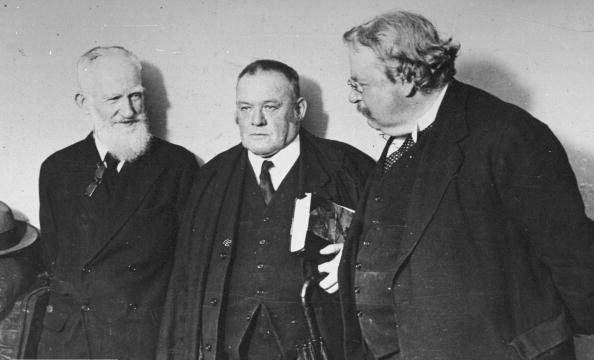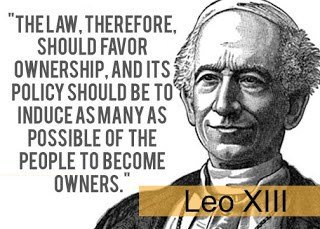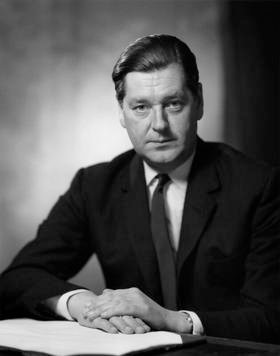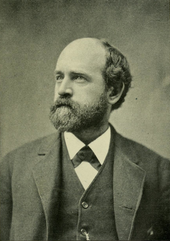I'm Not A Socialist
If you've ever read my writings, you are probably aware that I am quite familiar with a wide range of different political philosophies. You've probably noticed that I'm quite familiar with socialist theory. You've heard me talk about marxism (Karl Marx, Frederick Engels), fabian socialism/evolutionary socialism (Eduard Bernstein, George Bernard Shaw), libertarian socialism (Peter Kropotkin, Pierre-Joseph Proudhon, Murray Bookchin), Lange-Lerner market socialism (Fred M. Taylor, Oskar Lange, Abba Lerner), and even individualist socialism and Ricardian socialism (Thomas Hodgskin, Benjamin Tucker). This might give one the impression that I am a socialist, but technically I'm not. In the past, I have identified as an anarchist and as a socialist, but my current views don’t really fit into either of those categories.

"Socialism" refers to a wide range of ideas, but it can basically be reduced to about four competing definitions:
Type1Socialism: an economic system in which the workers own the means of production
Type2Socialism: a political system that is democratically controlled by the workers and in which the means of production are publicly owned
Type3Socialism: an economic system in which private property has been abolished in favor of communal ownership
Type4Socialism: an economic system in which allodial and fee-simple property have been replaced with usufructuary property
Which one of these four definitions applies to the term "socialism" really depends on which school of socialism you are referring to. Proudhon's mutualism, Bakunin's collectivism, Rocker's anarcho-syndicalism, and Morris' guild socialism would be examples of Type1Socialism. This form of socialism is basically libertarian and can be associated with either minimal government or anarchism. The socialist phase of marxism in Marx/Engels, the fabian socialism of Shaw, and the market socialism of Lange/Lerner/Taylor all represent Type2Socialism. These forms of socialism tend to be more statist. The communist phase of marxism in Marx/Engels, the fully-automated luxury communism of Bastani, and the communist anarchism of Peter Kropotkin are forms of Type3Socialism. These forms of socialism ought, theoretically, to be libertarian or anarchist. The Ricardian socialism of Thomas Hodgskin and individualist anarchism of Benjamin Tucker are forms of Type4Socialism. These forms of socialism are libertarian. (The philosophy of "anarcho-capitalism" is actually largely based upon the market anarchism of the Type4socialist Benjamin Tucker. If you replace Tucker's usufructuary property with allodial property, you arrive at Murray Rothbard's position.)

My views do not align with any of those definitions of socialism. Instead, my views fall more in line with third way economic philosophies, such as distributism, georgism, and social democracy. Distributism's "key tenet is that ownership of the means of production should be as widespread as possible rather than being concentrated in the hands of a few owners (Capitalism) or in the hands of state bureaucrats (Socialism)."(John Médaille) Georgism is "an economic philosophy holding that, while people should own the value they produce themselves, economic value derived from land (including natural resources and natural opportunities) should belong equally to all members of society"(Wikipedia) Social democracy is "a political, social and economic ideology that supports economic and social interventions to promote social justice within the framework of a liberal-democratic polity...a policy regime involving a commitment to representative and participatory democracy, measures for income redistribution and regulation of the economy in the general interest and welfare state provisions."(Wikipedia)
These three philosophies are referred to as third way philosophies insofar as they can be regarded as being neither capitalistic nor socialistic. "Capitalism," like socialism, is a term with several competing definitions, which are as follows:
Type1Capitalism: an economic system in which a minority of individuals, known as capitalists, dominate the economy and the majority of the people have little or no alternative to working for the capitalist class in exchange for wages
Type2Capitalism: an economic system in which there is private-ownership of the means of production and a market system for the distribution of goods and services
Using the first definition, Type1Capitalism, it can be said that these third way philosophies of distributism, georgism, and social democracy are neither capitalist nor socialist. Of course, by the other definition, these are just forms of capitalism. Also, these third way philosophies are not mutually exclusive. These three philosophies are actually compatible with one another, so that one can simultaneously adhere to all three philosophies.

I really don't care about workers owning and managing the means of production. I actually look forward to automation eliminating jobs and machines replacing workers. I think it is more important for all citizen's to have a share of social wealth. It's more important to me that all citizens get a basic income in the form of a citizen's dividend. If there is sufficient taxation and redistribution, then I don't care whether the means of production are publicly owned or privately owned. I'm not necessarily opposed to all forms of socialism; I just don't think it is necessary or really beneficial to transition to socialism when distributive justice can be achieved without adopting any form of socialism. I don't think that we need to abolish private ownership of land and natural resources, so long as we tax the monopolization of them by private individuals and use the tax revenue to benefit the whole community. Furthermore, I like these third way philosophies because they do not require us to have a violent revolution in order to set things right. Distributism, georgism, and social democracy can be implemented within the framework of the existing system, via reform rather than revolution. These third way approaches make it possible to achieve distributive justice and a better world without bloodshed or burning down the existing system.

P. S. There may be some confusion about the term "social democracy."
Certain social democrats have called themselves "socialists" because they like how it makes them seem more radical. I have in mind people like Anthony Crosland and Bernie Sanders. What they are advocating is not socialism proper. Part of the reason that some people equate social democracy with socialism is because the German Social Democratic Party was originally a marxist party. Reformers like Eduard Bernstein ended up revising the marxist party line. Over time, social democrats abandoned socialism altogether in favor of ameliorative reforms within the capitalist system. Modern social democracy, as expressed in the Nordic Model, actually rejects every aspect of marxist ideology and is not socialist at all.
Conservatives, libertarians, and Republicans are inclined to call liberalism, Keynesianism, and social democracy all "socialism." This is the result of ignorance. These folks use the term "socialist" as a slur. To many people on the right-wing, socialism is when government does things. This, however, is not an accurate definition of socialism. This is really just bullshit right-wing propaganda.
Additionally, it is worth noting that distributists tend to identify themselves as simultaneously "anti-socialist" and "anti-capitalist." However, they specifically define "socialism" in terms of Type2/Type3Socialism and define "capitalism" in terms of Type1Capitalism. They totally support Type2Capitalism, although they would never consider it to actually be “capitalism.” Furthermore, distributists may, but also may not, support Type1/Type4Socialism, but they would not refer to those types of socialism as "socialism."
@ekklesiagora, Absolutely I don't like to talk about political field. But this article is very interesting. I completely read now. You nicely contributed these topic use some examples..Thanks to the effort.
Thanks for sharing this post..i like politics.
i appreciate your every post.
best of luck.resteemit.
Your writing is very useful.
Thanks for sharing. @ekklesiagora
i dont know i am following you and i missed this how can i miss such an awesome article ... thanks for sharing
Very interesting post. Great quality !
However, I do not think that the essence of anarchism is directly related to who owns the mean of productions. As a matter of fact, the question of the mean of productions truly became central in the political philosophy with the quick development of the capitalistic society. Numerous anarchist societies were not concerned by who owns the mean of productions. One example is hunter-gatherer societies. They only use their body to hunt, and the forest belongs to everyone. So for some of them it would make no sense to argue who should own the mean of productions.*
To be clear, I am not saying that your argument is invalid. It is valid. My point is, you made a very important choice by picking a specific lens with which you consider this situation. This lens being : "the central question is : who own the mean of productions ?" To me it's not. I would say that anarchism is first and foremost answering the question of : "Who should take decisions for society ?" by "society itself". I feel like it is important, because who owns the mean of production is the direct consequence rather than the cause of the answer to this question.
To me - and I may be wrong - anarchism is by essence a way to bring democracy, which is a bigger picture than just the control of the mean of productions. You're absolutely right to focus on it because authors of this period do speak a lot about it. In my opinion, it's because it was the main issue of their time rather than because it was the essence of their philosophy. In the future, automatisation and the sharing economy (among other things) will replace this issue by others. However, it does not disqualify the essence of their philosophy.
Sorry my message is very long ahah, I'll write more on this later. To sum it up, all socialism share the same goal, which is more or less : "make a better society by improving the life of the majority and diminushing inequality". The timeless debate being how to achieve this goal ? For anarchist, we just organize ourself, but it did not work because everytime they were crushed by the government -> enter communism, that solve this issue by saying we have to seize the power. It fails mainly because "absolute power bring absolute corruption", an argument that was already present in anarchist philosophy -> after that, only the weakest of the three brothers, social-democracy, stays afloat mainly because it is not as threatening for the elite. The question of who owns the mean of production was only one episode, at a specific period, of this battle. With that being said, your post was very good !
*I am aware of a few book that deal with this issue. One of them that I would recommend is "Fragments of an anarchist anthropology" by LSE professor David Graeber.
I'm familiar with Graeber, and I have a copy of that book. Graeber has heavily influenced my views in multiple ways.
This post was concerned with socialism, not anarchism in particular. I rejected anarchism for different reasons. Socialism is defined in terms of the system of property. I reject socialism because I don't think it really matters, so long as government policy brings about distributive justice. I reject anarchism because I think government is necessary for solving certain major problems. Cap & trade and Pigouvian taxes are needed to deal with the ecological crisis. Plus, I think land value tax (annual ground rent) and a citizen's dividend large enough to constitute a universal basic income is the best way to achieve distributive justice. And I want universal healthcare. It's hard to reconcile some or these taxation and redistribution policies with anarchism.
I think social democracy can actually be a much stronger position than the others. Social democracy started as a form of libertarian marxism. (Cf. Eduard Bernstein, Fabian Socialism, etc.) Early social democrats had studied both marxism and anarchism, so Eduard Bernstein and George Bernard Shaw were both familiar with Proudhon and Kropotkin. In fact, Annie Besant—a notable Fabian—started a news paper with Peter Kropotkin. And the Fabian Society even held a series of debates to determine whether they would advocate democratic socialism or anarchism. Check out Shaw's "The Impossibilities of Anarchism." It shows a clear understanding of anarchism and a valid critique. William Morris' "Socialism and Anarchism" has a similar theme...both worth reading. Ultimately, social democracy forged its own independent identity as a third way. And Eduard Bernstein had already begun that process of reform while Marx and Engels were still alive.
I think the ideas of Yanis Varoufakis, Guy Standing, Scott Santens, and Martin Farley are better than socialism/anarchism, and their positions seem to be a variety of social democracy, harking back to Thomas Paine rather than Anthony Giddens. Incorporating land value tax and basic income into social democracy makes it much stronger.
Also worth checking out is the market socialism of Oskar Lange, Abba Lerner, and Fred M. Taylor...and the "RICH economy" proposal of Robert Anton Wilson. I think a more social democratic approach to solving the problem of automation can be achieved through land value tax and emissions taxes and such being used to fund a universal basic income. There's no need to nationalize industry then. You'd have social democracy rather than socialism.
For a more detailed account of the history of social democracy and its relation to/departure from socialism, see my articles:
(1) The History and Future of Social Democracy
(2) The Brilliance and Tragedy of George Bernard Shaw
(3) Third Ways
(4) Distinctions and Similarities... This last one discusses how third way philosophies and socialism can overlap and blur together.
Thanks for your numerous sources. It will take time to digest properly which it desserves to. I have some work to finish before tomorrow night so I'll come back a little bit later when this will be done. I am not sure how in your mind social democracy can work in our flawed representative democracy, but I'll definitely check your sources before making my point in case it answers my concern - plus because they look very intersting by themselves. I appreciate that you took the time to give a clear and complete answer ! Cheers to you !
For democracy to work, it must be participatory. Our system does need to change. I think we need something like Occupy Wall Street on a large scale, plus more libertarian municipalist style tactics...create grassroots democratic assemblies of the people and use them as a sort of citizens' union to go between the people and the State, and give people more leverage to control government democratically. I like Murray Bookchin and Abdullah Öcalan. Also, I like the idea of digital democracy to make participation easier, and I like ranked-choice voting to eliminate the "lesser of two evils" dilemma. Those are things that would help. Also, maybe government should offer $500 to everyone that votes, to encourage maximum participation in the democratic process. Anyways, grassroots direct action in order to move society in the direction of participatory democracy is probably necessary.
I agree, it's more important for people to have a share of social wealth. We will be seeing more and more automation by machines as time passes, thus some sort of changes will have to be made when there are less and less jobs...
Have you heard of Robert Anton Wilson's "RICH economy" proposal? It's worth checking out: http://abolishwork.com/2017/04/03/robert-antons-wilsons-rich-economy-excerpts-schrodingers-cat-trilogy/
Capitalism is an great philosopher. An economic and political system in which a country's trade and industry are controlled by private owners for profit, rather than by the state. Beside this, orther philosopher you define in post, must be appericiatable. Thankyou for the informative knowledge.
This is very useful . Thanks :)
@wwf host debates you may be interested in commenting on. here is the link for this weeks https://steemit.com/ungrip/@wwf/debate-forum-week-9-legitimacy-of-government
you have a vast amount of knowledge on the politics thanks for sharing man :) )